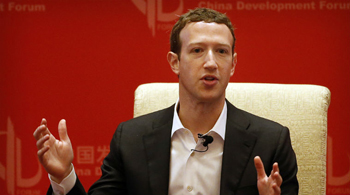Feb 8: A group of Facebook shareholders are seeking to remove company"s chief executive Mark Zuckerberg from the board of directors, claiming that an independent chairperson would be able to “oversee the executives of the company, improve corporate governance and set a more accountable, pro-shareholder agenda” better, according to a report by VentureBeat.
 Members of consumer watchdog SumOfUs put the proposal, asking Zuckerberg's ousting from board of directors of the social media website.
Members of consumer watchdog SumOfUs put the proposal, asking Zuckerberg's ousting from board of directors of the social media website.
“The shares held by four individual SumOfUs members enabled us to file this proposal,” Lisa Lindsley, the capital marker advisor of SumOfUs told VentureBeat. She informed that about 333,000 people had signed the petition requesting Facebook improve its corporate citizenship. However, only 1,5,00 out of 33,000 are actual shareholders in the company.
In the proposal, SumOfUs members stated that shareholders value will be enhanced by an independent board chairperson “who can provide a balance of power between the CEO and the board.” According to the group of members, “the combination of two roles, as the CEO and boar Chair, in a single person weakens corporation governance, which can harm shareholder value.
“Independent board leadership is sorely needed at Facebook following its decision in 2016 to approve a new capital structure,” the proposal reads.
The proposal has been called for a "constructive" move, amid the criticism the company been facing for its role in "misleading news, censorship, hate speech and alleged inconsistencies in the application of Facebook"s community standards guidelines and content policies; targeting of ad views based on race; collaboration with law enforcement and other government agencies; and calls for public accountability regarding the human rights impacts of Facebook"s practices."





Comments
Add new comment